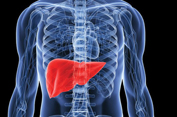Efficacy of Traditional Persian Medicine-Based Diet on Non-Alcoholic Fatty Liver Disease: A Randomized, Controlled, Clinical Trial
DOI:
https://doi.org/10.31661/gmj.v6i3.813Keywords:
Non-Alcoholic Fatty Liver Disease, Diet, Traditional Medicine, Clinical TrialAbstract
Background: Regarding the preventive approaches of traditional Persian medicine (TPM) in the management of chronic diseases such as fatty liver, we evaluated the effect of a TPM-based nutritional style on liver enzymes levels and fatty liver grade in patients with non-alcoholic fatty liver. Materials and Methods: Patients were randomly assigned to receive either a three-month TPM-based diet as the intervention group or received the low-fat, low-calorie diet as the control group. The primary outcome measure was changes in serum alanine aminotransferase (ALT) and aspartate aminotransferase (AST) levels. Secondary outcome measures were changes in fatty liver grade (fatty tissue infiltration in liver by using ultrasound imaging) and changes in patients’ body mass index (BMI). All outcome measures were evaluated at the baseline, at six weeks, and at three months after intervention. Results: Regarding within-group changes in outcome measures’ mean values, there was a significant reduction in ALT serum level, AST, BMI, and fatty liver grade after intervention, compared with baseline in both groups of study (P< 0.001). The results of between-group analyses showed significant decreases in both mean body mass index and mean fatty liver grade between the intervention group compared to the control group at the end of intervention (P<0.037 and P<0.003, respectively). Conclusion: This randomized open-label controlled clinical trial demonstrated that the traditional Persian medicine-based nutritional style, used as a non-pharmacological remedy, could reduce body weight and improve fatty liver grade in patients suffering from non-alcoholic fatty liver disease. [GMJ.2017;6(3):208-216] DOI:10.22086/gmj.v6i3.813








